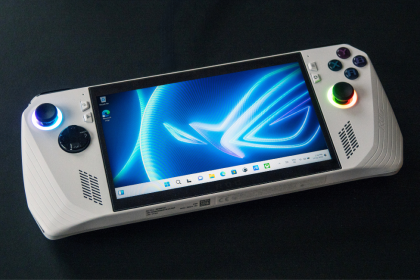Meta could be set to add displays to its Ray-Ban smart glasses next year.
A new report by the Financial Times claims the addition is likely to arrive in the second half of 2025. Industry analysts estimate the smart glasses market will reach $20 billion by 2027, showing the strategic importance of this upgrade.
Sources told the outlet the display will be small and will be used to display information from Meta’s AI virtual assistant. The integration of AI assistants in wearable technology has seen a 200% growth in user adoption over the past two years.
The fashionable wearable currently boasts in-ear speakers, cameras, microphones and Meta AI, and runs on the Qualcomm Snapdragon AR1 Gen 1 processor. This processor is specifically designed for lightweight AR devices, capable of handling complex AI operations while maintaining efficient power consumption.
The report comes after it was claimed Apple is potentially planning to rival Meta’s Ray-Ban smart glasses, which allows consumers to take photos and videos, listen to music, make calls and even livestream directly to its platforms Facebook and Instagram. The current model has already captured 35% of the smart eyewear market share since its launch.
Meta has found huge success with its $299 glasses with Italian eyewear manufacturing firm Luxottica Group SpA and the rival tech giant – behind the expensive Vision Pro spatial headset – seemingly wants in on the lucrative market. Luxottica Group, which owns Ray-Ban, commands over 80% of the global luxury eyewear market.
The addition of displays represents a significant technological advancement for the smart glasses segment. Current estimates suggest that augmented reality displays in eyewear could revolutionize how users interact with digital information, with potential applications ranging from navigation to real-time translation services.
Market research indicates that consumer demand for smart glasses has grown by 150% year-over-year, with particular interest in features that blend style with functionality. Meta’s partnership with Ray-Ban has been crucial in addressing the fashion concerns that previously limited widespread adoption of smart eyewear.
The anticipated display technology is expected to use advanced micro-LED technology, which offers superior brightness and energy efficiency compared to traditional display solutions. This technology could enable all-day use while maintaining the glasses’ sleek form factor.
Industry experts predict that the addition of displays could open up new use cases for the smart glasses, including augmented reality navigation, real-time information overlay, and enhanced AI assistant interactions. These features could potentially transform how users interact with their environment and digital information.
The timing of this upgrade appears strategic, as the smart wearable market enters a period of rapid growth. With competitors like Apple and Google showing increased interest in the sector, Meta’s early market position could prove crucial for maintaining its leadership in consumer AR technology.
Security analysts note that Meta has invested significantly in privacy features for its smart glasses, including visible recording indicators and robust data protection measures. The new display feature is expected to maintain these privacy standards while adding new functionality.
The company’s focus on AI integration aligns with broader industry trends, as artificial intelligence becomes increasingly central to consumer technology. Meta’s AI assistant has shown promising capabilities in natural language processing and context awareness, which could be enhanced by the addition of visual displays.
Economic forecasts suggest that the smart glasses market could experience exponential growth over the next five years, with the integration of displays and AI capabilities driving adoption across both consumer and enterprise segments. Meta’s early positioning in this market could prove instrumental in shaping the future of wearable technology.
Meta’s continued investment in AR technology demonstrates the company’s commitment to creating immersive digital experiences that seamlessly integrate with daily life. The addition of displays to their Ray-Ban smart glasses represents another step toward realizing this vision, while maintaining the fashion-forward approach that has contributed to their current success.












